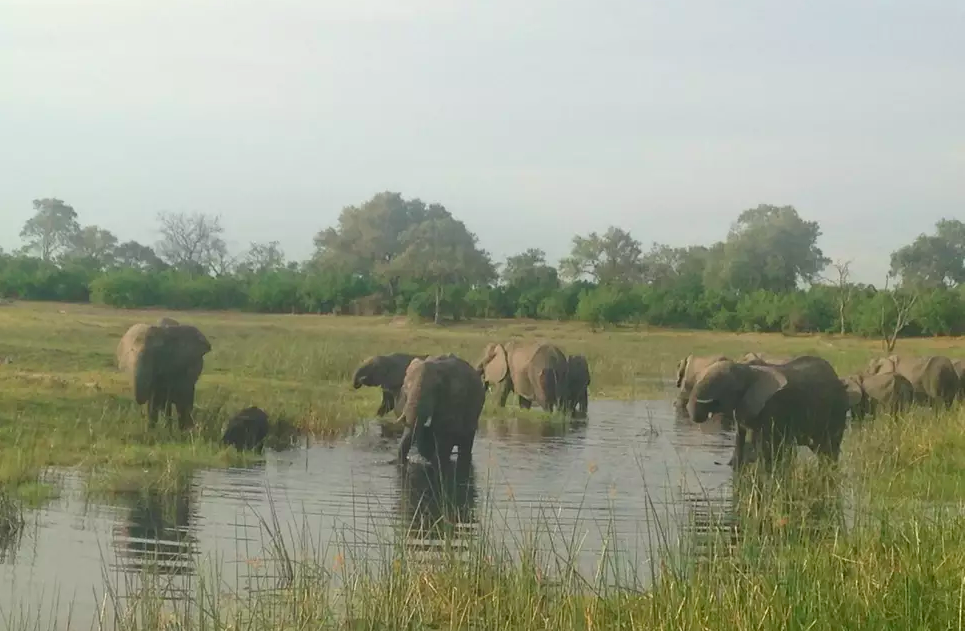The Illegal Wildlife Trade conference highlights the economic benefits of conservation
Christopher Vandome, Research Associate, Chatham House Africa Programme, on how the benefits of conservation extend far beyond tourism

Your support helps us to tell the story
From reproductive rights to climate change to Big Tech, The Independent is on the ground when the story is developing. Whether it's investigating the financials of Elon Musk's pro-Trump PAC or producing our latest documentary, 'The A Word', which shines a light on the American women fighting for reproductive rights, we know how important it is to parse out the facts from the messaging.
At such a critical moment in US history, we need reporters on the ground. Your donation allows us to keep sending journalists to speak to both sides of the story.
The Independent is trusted by Americans across the entire political spectrum. And unlike many other quality news outlets, we choose not to lock Americans out of our reporting and analysis with paywalls. We believe quality journalism should be available to everyone, paid for by those who can afford it.
Your support makes all the difference.The illegal wildlife trade (IWT) has a negative impact on African economies and their development. It destroys ecosystems and biodiversity, undermines institutions, and channels scarce state resources away from critical social programmes.
In Africa, Elephant poaching alone is estimated to cost between £3-5 billion per year in lost natural capital. But, the difficulty of quantifying the value of healthy ecosystems means that the full economic cost of IWT are often underrecognised.
This week the UK government hosts the fourth international conference on combating the illicit wildlife trade. Past achievements have included closing once legal markets and recognising the trade as a serious organised crime. The inclusion in this year’s conference of linking IWT to broader conservation issues marks an important step in linking international enforcement efforts to local development.
At this weeks’ IWT conference in London, Chatham House publishes its own research on the economic cost of the illegal wildlife trade and the incentives for Africa governments to pursue conservation driven development models. Our findings argue that by promoting wildlife economies and pursuing conservation-driven development models, southern African governments can protect their citizens, derive revenue from wildlife products, and establish world class tourism products.
Giving local communities the right to sustainably exploit their wildlife resources incentivises stewardship and conservation. This mitigates the pressures for poaching for profit or subsistence. Over the past 20 years, 200 communal conservancy enterprises in Namibia have generated over $81 million in financial and economic benefits for their members.Wildlife numbers have increased significantly as a result.
The tourism industry is worth over £40 billion to Southern Africa alone. This is forecast to rise to around £70bn by 2028. Wildlife viewing is a driver for 80 percent of this. Addressing IWT and promoting conservation is one aspect of protecting this industry and the vital direct and indirect jobs it provides.
African tourism is an internationally attractive investment proposition. Developing these industries is vital for many African countries seeking to diversify beyond the extractive industries on which they have become dependent. Encouraging investment partnerships facilitates skills transfers and expands economic opportunities through local procurement.
Organisations such as the Giants Club ensure that tourism investment also supports the conservation of the eco-systems upon which the industry depends.
The economic benefits of conservation extend well beyond the potential of the tourism industry. In Zambia, COMACO (Community Markets for Conservation) is working with 179,000 farmers to incentivize conservation of wildlife and reduce poaching by helping develop wildlife products and facilitating a route to market for them.
Protecting ecosystems through improved agricultural practices builds climate change resilience. Making communities decision makers also contributes to gender empowerment in societies where women have traditional responsibilities as food-growers.
Tackling IWT and pursuing conservation is also key for post conflict stability, and regional security. The Southern African Development Community (SADC) has pioneered transfrontierconservation areas (TFCAs) - collaboratively managed spaces across international boundaries to protect biodiversity and promote human socio-economic development. By cooperating on law enforcement and working with the people inside the protected areas, governments have provided safe spaces for animals and people.
UK engagement with these African initiatives supports efforts that the crucial links between biodiversity, socio-economic development, and peace and security. Such an approach complements wider UK wider anti-poaching efforts including successful military training missions in Gabon and Malawi.
Africa is the world’s youngest continent. It is vibrant and innovative, but governments are under pressure to generate jobs and opportunities. Tackling IWT creates an environment for economies to flourish, develop, and attract investment. The London Conference is an integral part of the UK taking a holistic approach to IWT in partnership with African stakeholders.
Christopher Vandome is a Research Associate in the Chatham House Africa Programme. For more information click here
Join our commenting forum
Join thought-provoking conversations, follow other Independent readers and see their replies
Comments